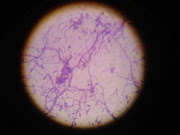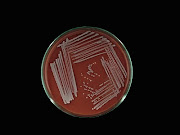Thapaliya Manish1*, Shakya. Sastrika2, Shrestha
Upendra Thapa3, Dangol Astha2, Shrestha Kusum4
1Department of Microbiology, National College,
Kathmandu, Nepal
2Nepal, Department of Microbiology, Kantipur
College of Medical Science, Kathmandu, Nepal
3Central Department of Microbiology, Tribhuvan
University, Kathmandu, Nepal
4Department of Microbiology, St. Xavier’s
College, Kathmandu, Nepal
ABSTRACT
Food-borne disease outbreak have imposed substantial burden on
health care systems and have markedly reduced the economic productivity of a
country. In developing countries like Nepal, farmers use antibiotics in feed
for therapeutic as well as non-therapeutic purpose. This study aims to evaluate
bacteriological status of raw chicken meat and their Antibiogram. A comparative
study of 25 livers and 25 breast muscles was carried out using standard
procedures for isolation and identification of E. coli, Salmonella
and their Antibiogram. The prevalence of E. coli and Salmonella
in chicken liver was found to be 52% and 36% respectively; and in case of
chicken breast, it was 44% and 0% respectively. The isolates from liver showed wider
resistance pattern towards in-use antibiotics in comparison to isolates from
breast muscles. In addition, 20.83% of Escherichia isolates were found
to be multi-drug resistant. The findings of the study indicated emergence of
multi-drug resistant bacteria in chicken meat; therefore, it is important to
control indiscriminate administration of antibiotics to the poultry animals.
Key words: Escherichia coli, Salmonella, Food- borne disease, Bacteriological status, Antibiogram, Multi- drug resistant
Citation: Thapaliya et al., Bacteriological Profile of Raw Chicken Meat Collected from Lalitpur and their Antibiogram. J Microbiology and Immunology 2021, Volume and Issue: 3(1)
Full text: Download





















